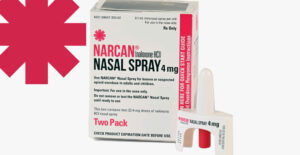
Google Is Not Your Therapist
Google gives us the answers we crave. But are they more helpful, or harmful?

Cassandra McIntosh is a Workit Health contributor. She brings a unique mix of expertise drawn from her background in counseling psychology, socio-organizational psychology and consumer insights.

Google gives us the answers we crave. But are they more helpful, or harmful?

Numerous studies have linked the stress caused by disastrous events to substance use and heightened risk of relapse for those in recovery. Thus, now is the time to safeguard your sobriety and batten down the hatches on your mental health in general!

The truth is, there are actually many excellent reasons for your loved one acting less than lovely in the throes of addiction. Addiction is a disease that’s practically perfect for bringing out your beloved’s inner beast.

You’re ready to quit opiates, and you know medication-assisted treatment is right for you. But how can you afford the Suboxone prescription?

Maybe it’s just a hunch, or maybe you’re absolutely certain — your loved one is struggling with pain meds, a.k.a. opioids, the term most often used in terrifying headlines ripping through the nation lately. So how do you talk to them about it in the most constructive, helpful way possible?

Today is one of the biggest drinking-oriented holidays of the year, making it tough for some of our sober stars out there. In that spirit, here’s a Workit-style perspective switcher: let’s celebrate some reasons sobriety is lucky!
Even those of us who “love traveling” would be hard-pressed to say that we love commercial air-transit, with its recycled air, tarmac wait times, and the TSA (with all due respect TSA, but c’mon). No worries though, your trip needn’t compromise your sobriety. We’ve rounded up some tried and true tips from our Workit team.

Reality is, a huge number of people in the workforce struggle with addictive behaviors; over 20 million met the criteria for substance use disorders in 2014 (according to SAMHSA). That’s around 8% of the population, and only includes those who meet the full diagnostic criteria. Millions more struggle with risky use and other addictions.

Tomorrow is National Overdose Awareness Day, and we can’t talk about overdose without talking about Narcan (naloxone) as well. It’s the powerful, life-saving medication that, like almost everything to do with addiction treatment, has inspired a lot of controversy and confusion.

The media can make a mess out of reporting when it comes to “research”, and alcohol-related headlines are no exception. Case in point: this past summer certain press outlets had a field day reporting on this study, based on a poll of around 5,000 people. In a nutshell, it found that older, married couples were likely to have similar drinking habits.

Suboxone (buprenorphine/naloxone) is indicated for the treatment of opioid dependence in adults. Suboxone should not be taken by individuals who have been shown to be hypersensitive to buprenorphine or naloxone as serious adverse reactions, including anaphylactic shock, have been reported. Taking Suboxone (buprenorphine/naloxone) with other opioid medicines, benzodiazepines, alcohol, or other central nervous system depressants can cause breathing problems that can lead to coma and death. Other side effects may include headaches, nausea, vomiting, constipation, insomnia, pain, increased sweating, sleepiness, dizziness, coordination problems, physical dependence or abuse, and liver problems. For more information about Suboxone (buprenorphine/naloxone) see Suboxone.com, the full Prescribing Information, and Medication Guide, or talk to your healthcare provider. You are encouraged to report negative side effects of drugs to the FDA. Visit www.fda.gov/medwatch or call 1-800-FDA-1088.
All clinical and medical services are provided by licensed physicians and clinicians who are practicing as employees or contractors of independently owned and operated professional medical practices that are owned by licensed physicians. These medical practices include Workit Health (MI), PLLC, Workit Health (CA), P.C., Workit Health (NJ), LLC, Workit Health (OH), LLC, and any other Workit Health professional entity that is established in the future.
Arizona
9700 N. 91st. St.
Ste A-115
Scottsdale, AZ 85258
fax (HIPAA): (833) 664-5441
Florida
4730 North Habana Ave
Ste 206
Tampa, FL 33614
fax (HIPAA): (813) 200-2822
Michigan
3300 Washtenaw Ave
Ste 280
Ann Arbor, MI 48104
fax (HIPAA): (855) 716-4494
Montana
415 N Higgins Ave
Ste 6
Missoula, MT 59802
fax (HIPAA): (855) 716-4494
New Jersey
5 Greentree Center
Ste 117
Marlton, NJ 08053
fax (HIPAA): (609) 855-5027
New Mexico
5901 Indian School Road, NE
Ste 212
Albuquerque, NM 87110
fax (HIPAA): (855) 716-4494
Ohio
6855 Spring Valley Dr
Ste 110
Holland, OH 43528
fax (HIPAA): (513) 823-3247
Oklahoma
1010 24th Ave NW
Suite 100
Norman, OK 73069
fax (HIPAA): (855) 716-4494
Texas
8229 Shoal Creek Blvd
Ste 105
Austin, TX 78757
fax (HIPAA): (737) 738-5046
Clinic locations
Arizona
9700 N. 91st. St.
Ste A-115
Scottsdale, AZ 85258
fax (HIPAA): (833) 664-5441
Florida
600 Heritage Dr.
Ste 210, #17
Jupiter, FL 33458
fax (HIPAA): (813) 200-2822
Michigan
3300 Washtenaw Ave
Ste 280
Ann Arbor, MI 48104
fax (HIPAA): (855) 716-4494
Montana
415 N Higgins Ave
Ste 6
Missoula, MT 59802
fax (HIPAA): (855) 716-4494
New Jersey
5 Greentree Center
Ste 117
Marlton, NJ 08053
fax (HIPAA): (609) 855-5027
New Mexico
5901 Indian School Road, NE
Ste 212
Albuquerque, NM 87110
fax (HIPAA): (855) 716-4494
Ohio
6855 Spring Valley Dr
Ste 110
Holland, OH 43528
fax (HIPAA): (513) 823-3247
Oklahoma
1010 24th Ave NW
Suite 100
Norman, OK 73069
fax (HIPAA): (855) 716-4494
Texas
5373 W Alabama St
Ste 204
Houston, TX 77056
fax (HIPAA): (737) 738-5046
Discreet, flexible, and 100% online—Workit 90 is a recovery program that fits your life, giving you the tools you need to cut back or quit drinking.
This site uses cookies to improve your experience. By using this site, you consent to our use of cookies.